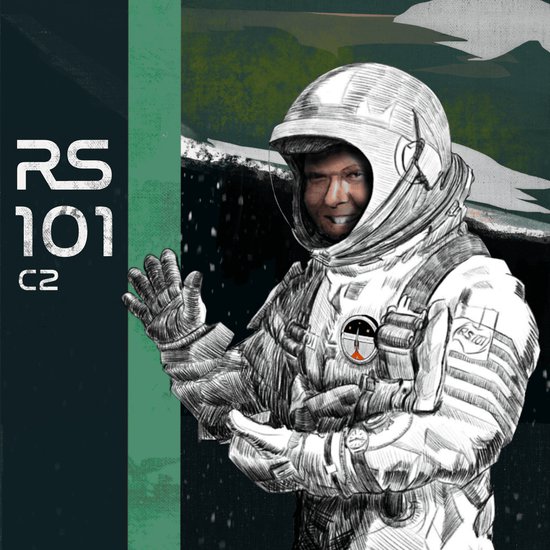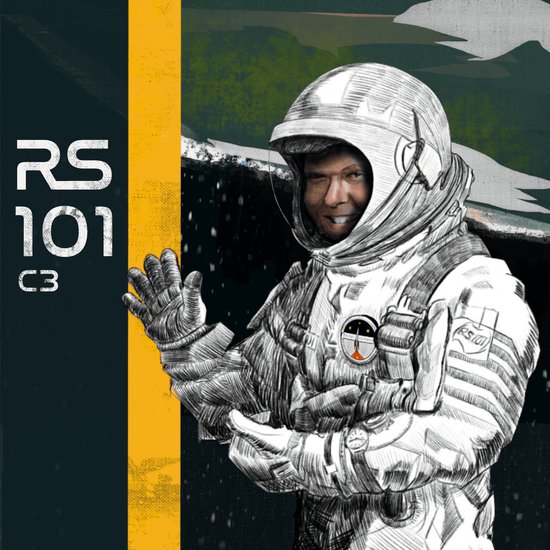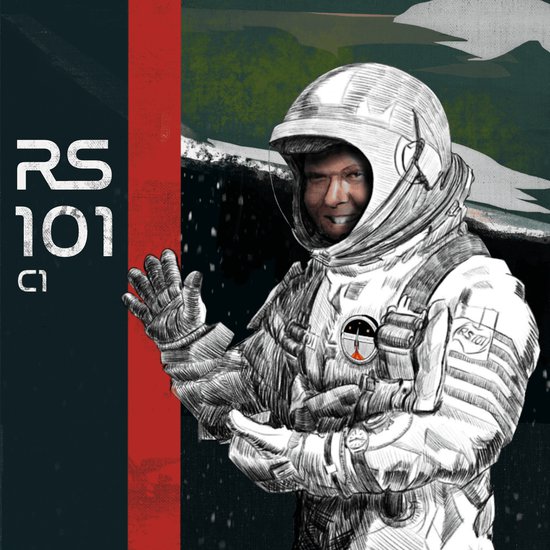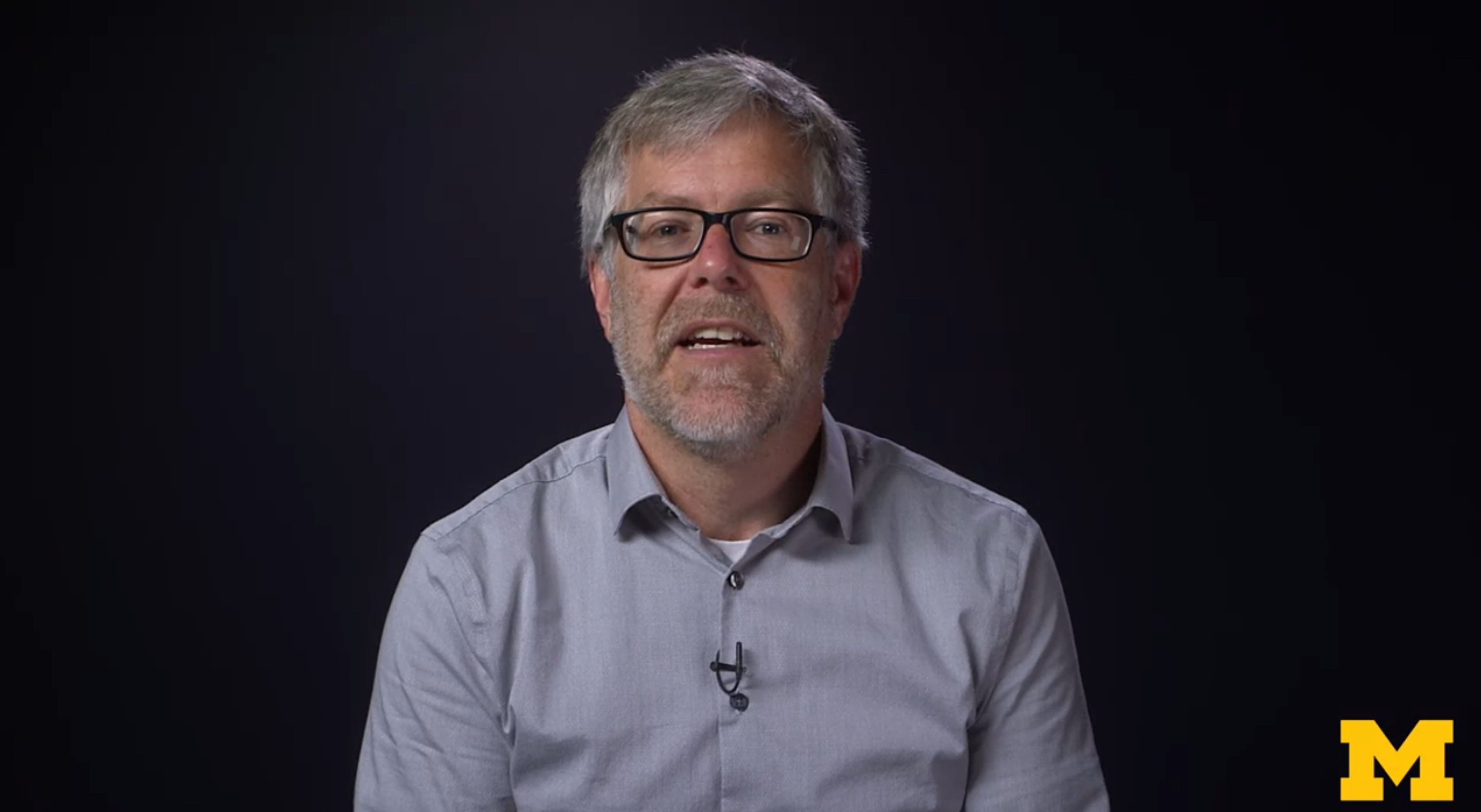
Understand the World Around you Through Rocket Science
Rocket Science 101 dives into how rocket science contributes to our day-to-day lives
By Sam Deleon-Castillo, Communications Fellow
Everyone knows the phrase, “It’s not rocket science.” While that is shorthand for “it’s not complicated,” it might make rocket science seem impossibly complex and intimidating. But understanding rocket science helps people understand the world around them. From understanding how everyday devices like our smartphones work to reading the weather forecast before we leave the house.
Taught by Aaron Ridley, professor of climate and space sciences and engineering in the College of Engineering, the open online course series “Rocket Science 101” helps learners of any background understand the world around them and what really goes on behind the scenes of our nature and our technology. This course series can be appreciated and understood by anyone, Ridley said. It features foundational concepts, history, and how rocket science impacts everyday life, and he encourages people to explore all that the course has to offer.
“My recommendation would actually be to watch the videos somewhat staggered, a little bit at a time. It’s best to split it up any way you want,” Ridley said.
Before diving into the science, learners explore how a rocket works. The first course of the three-course series introduces the rocket and answers questions such as, “Why are rockets so big?” and “How does a rocket engine even work?” While it is a massive engineering feat, it really is quite simple, said Ridley. As a whole, a rocket can seem intimidating, but the course breaks it down into bite-sized videos that can be viewed on a morning commute.
“What I am trying to do through this class is break rocket science down into understandable parts. You don’t have to understand the intricacies of everything to grasp the most interesting concepts.”
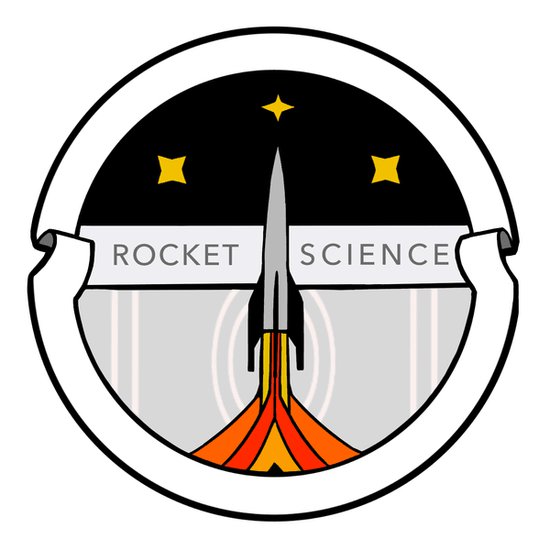
Rocket Science 101
Rocket Science 101 focuses on the history of rocketry across the globe, how orbits work, rocket engine functions, and the benefits of space missions. Take a deeper look at how Hollywood’s depictions of space travel, and the things it gets right and wrong about rocket science.
Space exploration has reached great heights, but to understand where we will be exploring in the future, it is important to know where it all began. The second course in this series takes learners on a journey of the history of rockets starting with the earliest models and ending with the technology of the future.
Ridley said the course allows people to experience hundreds of years of innovation at their own pace while also learning about key moments in our country's history.
The last course in the series highlights the impacts of rocket science on people’s everyday lives. Ridley walks learners through the different devices used daily and how they can all be traced back to rocket science and adjacent technologies, like satellites. As this course teaches the many ways in which satellite data is being utilized, learners can find a newfound appreciation for the world around them.
“In fact, if we did not have all those satellites, then we wouldn’t have the technology we have today. So I believe it gives a deeper appreciation for everyday things we use,” Ridley said.
Learners will be able to understand the complexities of some daily systems and recognize scientific representations in film and television.
“You know, we're surrounded by movies.” Ridley said, “By relating space to movies, you can teach them more about how science works and how engineering works.”
Ridley hopes learners can take what they learn in “Rocket Science 101” and better interpret how accurately movies represent popularized concepts. Through the course, learners can question concepts such as gravity or space travel while watching a movie and turn it into a motivation to learn more. “Rocket Science 101” will challenge learners to question not only the world around them but also what they already know.
“Humans strive to understand the unknown,” Ridley said. With this course, learners can take what they learn and better understand the planet we inhabit and even the possibilities beyond it.
Ridley said he hopes to bring this knowledge to the next generation of scientists and decision-makers and even to learners who just want to be able to say they can understand how the science of rockets works and how it impacts their daily lives.
It really isn’t rocket science, after all, it is a journey through history, engineering, and so much more. And the best part is, you don’t have to worry about leaving the ground.
